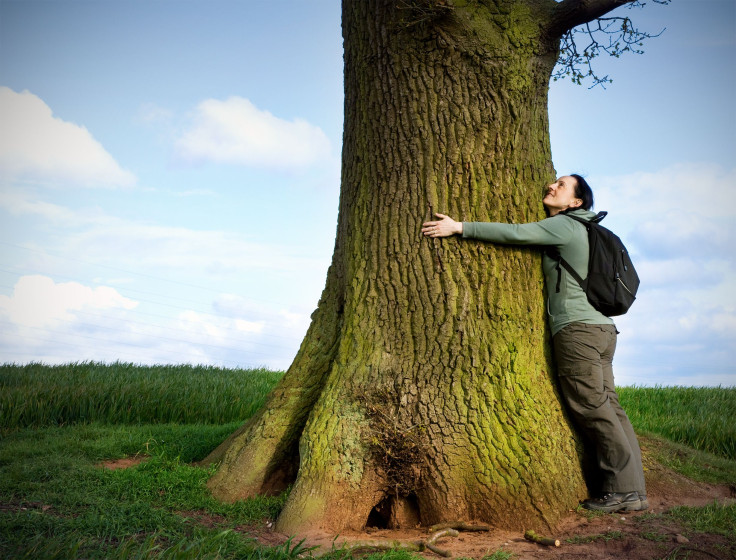Trees Save 850 Human Lives Every Year, And Battle Respiratory Diseases Daily

You may have a new good reason to a hug a tree today: Trees are responsible for cleaning our air and lungs, and they save hundreds of lives per year.
In a new study completed by Forest Service scientists, researchers examined the extent to which trees provided people with a boost in their health, and found that they save about 850 human lives in a year, and prevent up to 670,000 incidents of acute respiratory symptoms.
Trees help reduce air pollution by trapping pollutants and preventing them from entering human lungs; they also absorb plenty of carbon dioxide which they turn into oxygen for us to breathe. A previous study completed by the Forest Service and Davey Institute found that trees in New York City in particular saved about eight lives per year, due to their ability to strain pollutants from the atmosphere. In the most recent study, the researchers found that though trees accounted for only a one percent improvement in air quality, this was significant enough to impact human health.
“With more than 80 percent of Americans living in urban areas, this research underscores how truly essential urban forests are to people across the nation,” said Michael Rains, director of the Forest Service’s Northern Research Station and the Forest Products Laboratory, in a press release. “Information and tools developed by Forest Service research are contributing to communities valuing and managing the 138 million acres of trees and forests that grace the nation’s cities, towns, and communities."
Trees can make cities healthier. Air pollution can have a negative effect on your overall health, specifically with diseases like asthma, pulmonary and cardiac disorders, as well as vascular and neurological problems.
So while big cities might be centers of opportunities and resources, they also rely significantly on the number of trees and parks present, so don’t take that green for granted. “In terms of impacts on human health, trees in urban areas are substantially more important than rural trees due to their proximity to people,” said Dave Nowak, an author of the 2013 study about urban trees’ benefits, in the press release. “We found that in general, the greater the tree cover, the greater the pollution removal, and the greater the removal and population density, the greater the value of human health benefits.”
Source: Nowak D, Hirabayashi S, Bodine A, Greenfield E. Tree and forest effects on air quality and human health in the United States. Environmental Pollution. 2014.
Published by Medicaldaily.com



























